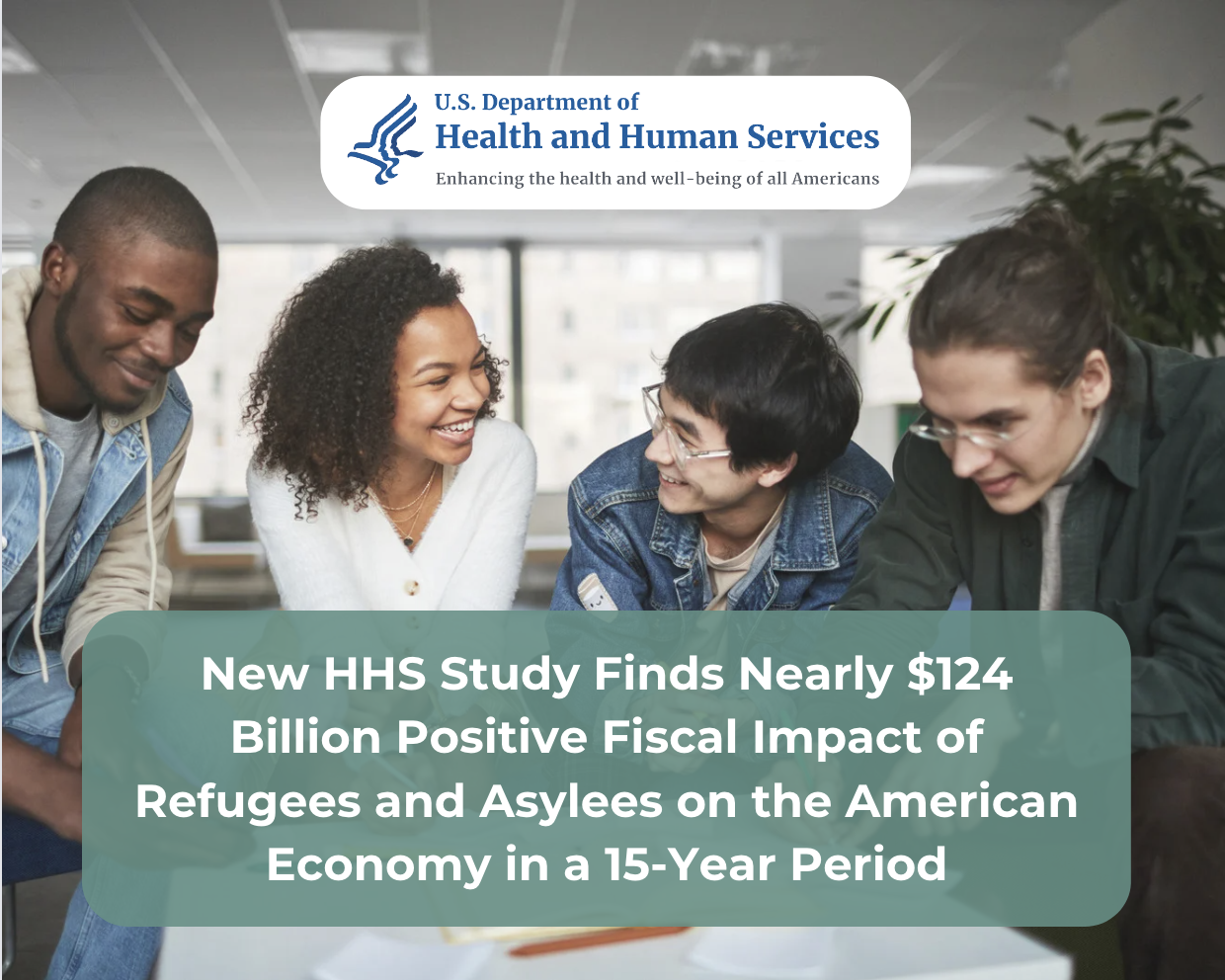At Soft Landing Missoula, we recognize the many ways in which refugees and asylees contribute to our communities.
As Missoula families work and play alongside our new neighbors, we experience first-hand the benefits of a more diverse community. By sharing the richness of cultural practices and traditions, teaching us about experiences that create resilience and strength, and showing us a window to the increasingly global world we all live in, refugees and immigrants offer an essential perspective on what it means to be a good neighbor. This is especially important for a rural state like Montana.
Economic Contributions of Refugees and Asylees
According to a recent study conducted by the U.S. Department of Health and Human Services (HHS), refugees and asylees also provide significant economic benefit to our communities. This study reveals the remarkable contributions of refugees and asylees to the American economy and sheds light on the invaluable role these individuals play in shaping our nation’s economic landscape.
Refugees and asylees have not only contributed significantly to government revenues but have brought a fiscal benefit to both federal and state governments across the US. Over a 15-year period, refugees and asylees have made a substantial fiscal impact of nearly $124 billion, with approximately $92.3 billion benefiting state and local governments and $31.5 billion benefiting the federal government. These figures highlight the overwhelmingly positive influence refugees and asylees have on our economy.
This study also helps to debunk the misconceptions surrounding the economic burden often associated with refugee resettlement. Refugees and asylees have proven to be positive contributors, surpassing the cost of public services through their tax contributions. Over the 15-year period examined, their tax payments totaled a staggering $581 billion, far surpassing the $457.2 billion spent on government services. As Robin Dunn Marcos, HHS Deputy Assistant Secretary for Humanitarian Services, aptly stated, “We have witnessed for years the significant contributions that refugees and asylees provide to our communities and workplaces.” Indeed, the report serves as a testament to the resilience, entrepreneurial spirit, and economic dynamism of refugee and asylee populations.
Addressing Workforce Challenges in Montana
Economic impacts of refugees and immigrants can be especially significant in Montana where our aging population is leading to a decline in labor force participation. Montana is among the top 10 states in the nation with the highest percentage of residents 65 and older. The 2023 Montana State Plan on Aging underscores this rising percentage, highlighting the pressing need for solutions to sustain the workforce. Retirements have led to a decline in labor force participation, as noted in the 2023 Montana Labor Day Report, exacerbating workforce shortages. Refugee and asylee families, often young and dynamic, engage in bolstering the local economy. While they may not be the sole solution to this challenge, they certainly play an essential role in addressing the economic implications of Montana’s aging population. By actively participating in the workforce, they bring fresh energy and skills, offering a promising outlook for combatting the economic challenges presented by our state’s demographic shifts.
As we celebrate the profound positive impact that refugees and asylees bring to their new American home- economic and otherwise- we can see how important it is to foster inclusive communities where newcomers can thrive and contribute their talents. We are hopeful the insights from this new report can be a part of informing evidence-based decision-making and advancing policies that uphold America’s tradition of welcoming vulnerable families from around the globe. Together, we can continue creating a more inclusive and welcoming America for generations to come.

